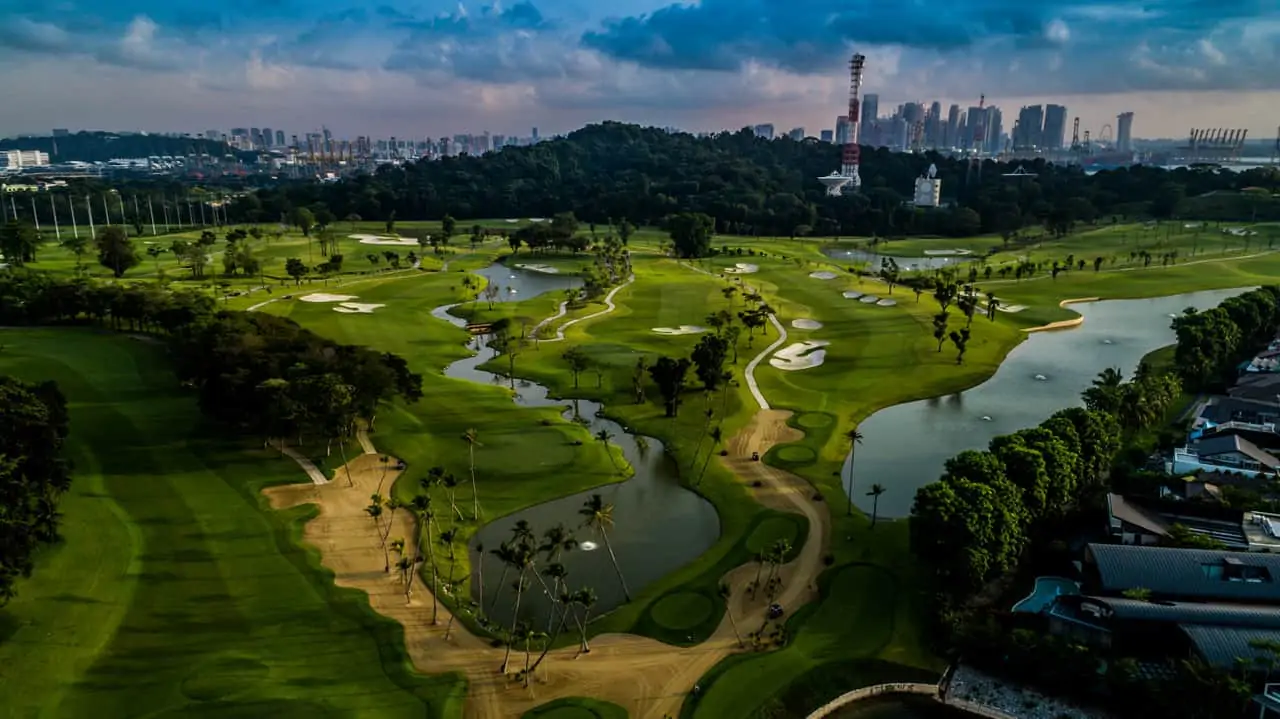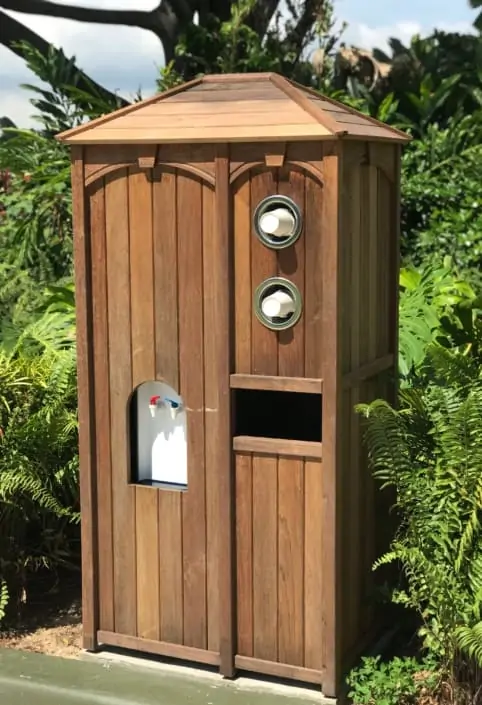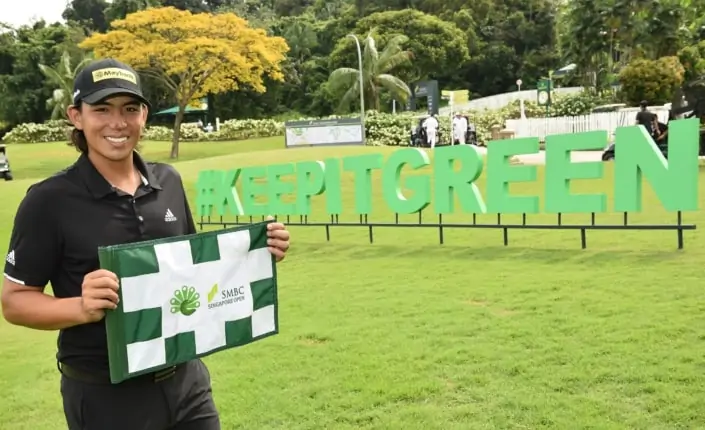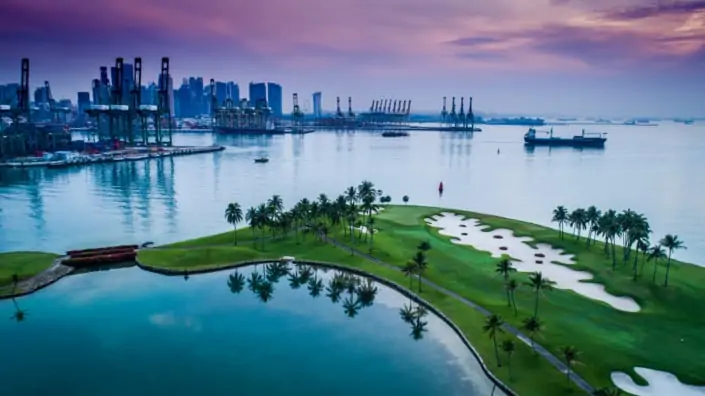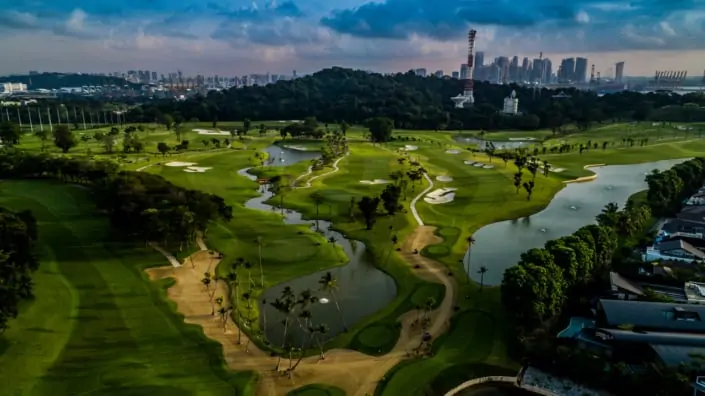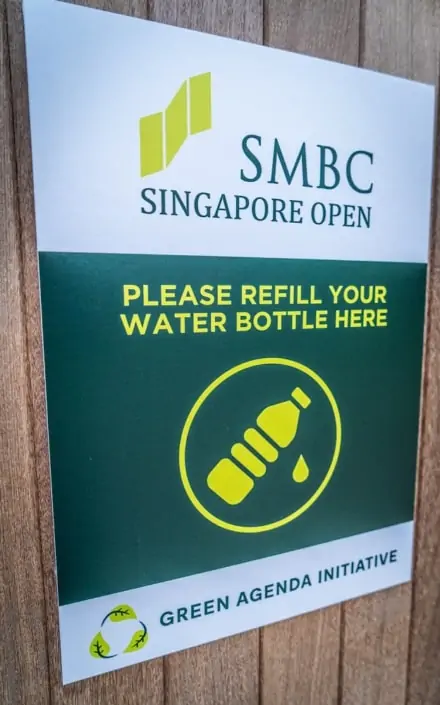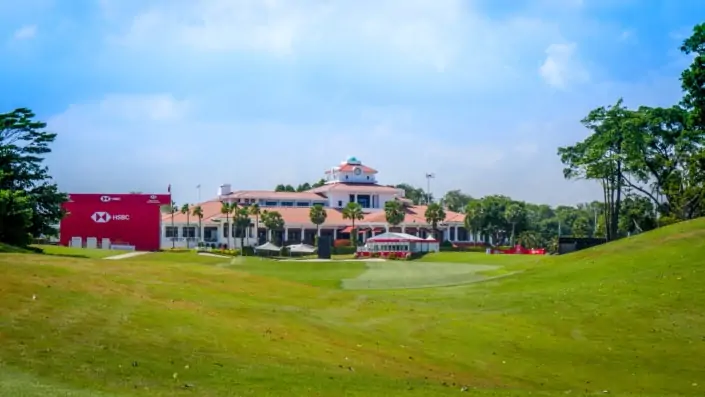Sentosa Golf Club wants to become CO2 neutral
Sentosa Golf Club wants to become climate neutral. Not an easy plan given the variety of projects it includes. “The ideas didn’t go down well at first” – avoiding water bottles in Singapore’s sweltering climate was not a project that Andrew Johnston, general manager and director of agronomy, at Singapore’s renowned Sentosa Golf Club met with much favor. The avoidance of plastic, which is currently much less pronounced in Asia compared to Europe, was not an issue for the members of the 36-hole facility. But certainly for the American Johnston. Three years ago, he won out with his idea, installed fixed water dispensers throughout the facility, and sold and gave away reusable bottles in the pro shop and in the restaurant. The result is impressive: “In the second year we saved 122,000 plastic bottles, and we are now at over 300,000 in total. That corresponds to the filling quantity of 20 pools in Olympic dimensions” is his summary.
The success provided motivation at the Sentosa Golf Club: “It just fired us up to look for more plastic,” summarizes Johnston, who is now considered an advocate of a reorientation towards a significantly more ecological management of golf courses in Asia.
- The lids and cups for coffee or other portable beverages are now made of cardboard or paper.
- Cart food boxes, very popular in Asia and America, are also plastic-free.
Johnston knows that environmental awareness in Asia is currently not comparable to that in Europe. In this respect, many steps that count as initial successes here have already been established in other countries. For him, however, it is important that the topic gains in presence. Sentosa Golf Club enjoys an extremely high reputation worldwide as the host of the Singapore Open, the HSBC Women’s World Championship and the Asia Pacific Amateur Championship. This also makes it easier to communicate the topic of ecology.
The goals of the greenkeeping team with at least 75 workers are ambitious: “We want to become CO2-neutral,” is the slogan. This is one of the reasons why the Sentosa Golf Club is having its CO2 footprint determined in cooperation with the University of Wisconsin . At the same time, we focus on saving energy and resources in all areas.
- A cooperation with a local energy manufacturer should lead to the fact that only electricity from renewable energies is used. Unlike in Germany, for example, it is not yet possible in Singapore to contractually purchase green electricity.• The water for the entire system is drawn from rainwater reservoirs . Due to the high levels of precipitation in the region and a special channeling of rainwater from the hillsides in the area into the lower-lying tanks and ponds, there is no shortage of water.
- The irrigation systems of the golf courses have been completely renewed. By switching from two sprinklers to one, water consumption was reduced by 40%.
- The cart fleet with 230 vehicles was completely converted to lithium batteries . These not only have an eight-year guarantee instead of the usual one-year guarantee and easily store energy for 36 holes. They also need to be replaced much less frequently. The investment in the carts alone was $300,000, “but the lithium batteries are so much more efficient and last so much longer that it pays off in the long run,” explains Johnston.
- The machines used to apply fertilizers and sprays to the greens received new so-called GPS rings, which lead to an extremely precise application of the materials. “This eliminates the need for a second application process. We save time and material.”
- With GameOn, a complete communication campaign was developed to promote and explain the importance of sustainability in golf in Asia. On the one hand, it is intended as the golf industry’s answer to the challenges of climate change, but it also supports the golf course sustainability offensive of the R&A 2030. The main goal of this R&A project is to reduce the carbon footprint of golf clubs worldwide. GameOn is intended to provide other golf facilities with an insight into Sentosa Golf Club’s sustainability programs and as such will also include a free tool kit that will be available for download later in 2020.
The club’s plans are ambitious. They are encouraged and supported by the owners of the facility. And: The club has both the manpower and the finances to implement ambitious projects. In Johnston’s opinion, however, that alone is not the sole basis on which the reorientation towards more ecology stands. “I was also responsible for a club with 54 holes and 27 employees in America. Even with little money, you have to develop ideas. In the end, it’s about the goal you have.”
The members of the Sentosa Golf Club have now also understood this. Plastic water bottles are a no-no on site. An unloved idea has become a habit.

